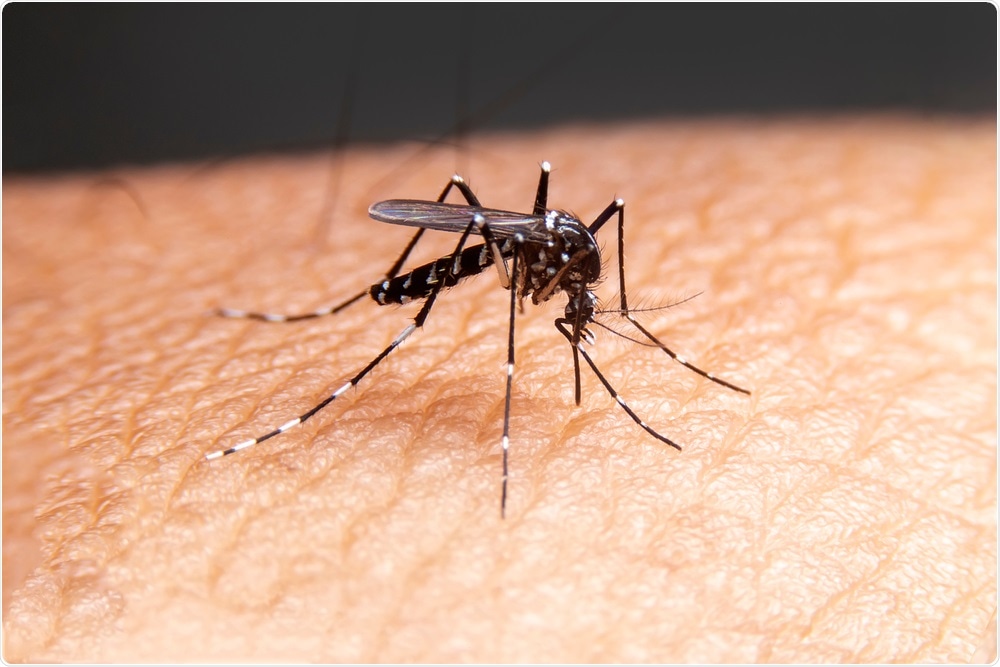The parasite causing the most severe form of human malaria uses proteins to make red blood cells sticky, making it harder for the immune system to destroy it and leading to potentially fatal blood clots.
New research at the Crick has identified how the parasite may control this process.

Image Credit: Witsawat.S/Shutterstock.com
The Nature Microbiology study looked into how the parasite, Plasmodium falciparum, evades the immune system. This parasite causes more than 95% of the 400,000 deaths caused by malaria each year.
Once it enters the human bloodstream, the parasite releases proteins into the host's red blood cell which are then presented on the outside surface of the cell.
These proteins stick to other blood cells and blood vessel walls so that the infected cells no longer circulate around the body and pass through the spleen. This protects the parasite as the spleen and the immune cells inside it would destroy these infected cells.
This stickiness can also lead to blood cells lumping together into blood clots. By blocking the blood flow to vital organs, these clots can have fatal consequences, especially if they form in the brain or placenta.
Heledd Davies, co-lead author and postdoc in the Signalling in Apicomplexan Parasites Laboratory at the Crick, says: "This malaria parasite species is able to use a number of different variants of the same protein to make red blood cells sticky. So, if the body develops antibodies that stop one variant working, the parasite can simply switch to another one, leading to a constant arms race."
A potentially more effective route for therapies could be to target the mechanism malaria uses to transport the proteins to the cell's surface, as blocking it would reduce symptoms and allow the body to clear the parasites."
In this study, the authors identified proteins, so-called kinases, which are involved in getting the sticky proteins to the cell surface. Kinases are enzymes that can turn many other proteins on or off, and often regulate important processes in cells.
"These kinases are not released by other strains of malaria that infect humans, so we predicted that they are some of the factors that make this species deadlier," says Hugo Belda, co-lead author and Ph.D. student in the Signalling in Apicomplexan Parasites Laboratory at the Crick.
In our research, we tested what happened when we removed different protein kinases from the parasite, while it is living in human blood. One protein played an important role in controlling cell stickiness, while others may be required for yet unknown aspects of the parasite's biology. This is very exciting and will help to better understand the disease mechanism,"
Moritz Treeck, Signalling in Apicomplexan Parasites Laboratory at the Crick.